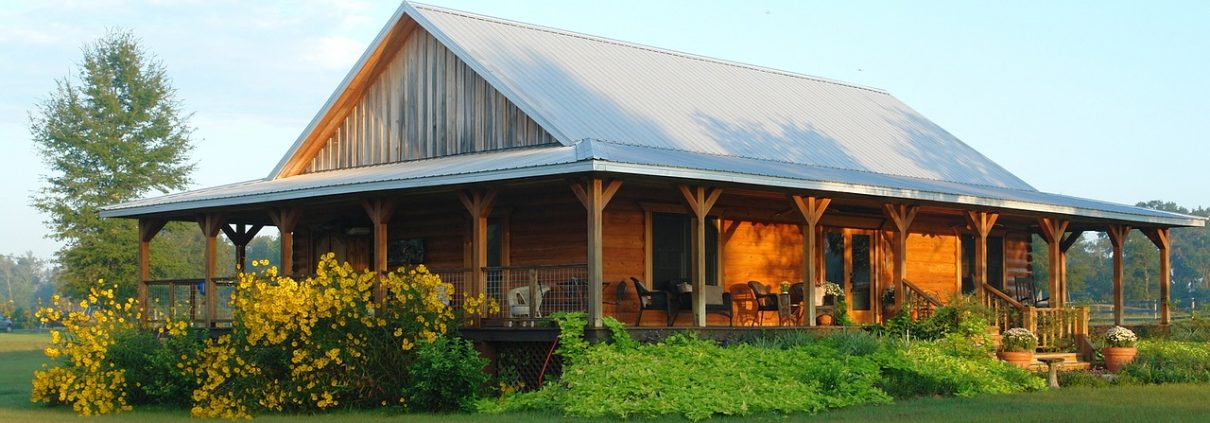The Road To Buying Your First Rural Home
The COVID-19 pandemic has convinced many people that they don’t want to continue living in urban areas with high population densities. Millennials were already starting to move away from cities, but the pandemic has piqued their interest and encouraged many to consider buying their first rural home.
If you plan to be buying your first rural home soon, you will need to do some research that makes the process easier. In many cases, buying a rural home, especially if it sits on a few acres of land, is different than buying a home in a city or suburb. The following recommendations should help you learn more about your options and choose a country home you’ll love.
Know How You Can Use the Land Once You Own It
Typically, rural land has fewer restrictions than urban and suburban properties. Don’t assume that you can do anything you want after buying your first rural home, though. Even if local laws let you set up a residential hobby farm, they may prevent you from owning certain animals or using specific farming practices.
Use this list of important questions to help you choose a piece of land that fits your expectations.
Know What Features You Want From Your Rural Land
You should also look for features that will meet your specific needs and wants to get the most out of your property. For example, it makes sense to buy a rural home on wooded property if you want to hunt, hike, or use it for many other recreational purposes.
There are many potential features to consider before buying your first rural property. A pond or lake provides great entertainment for swimmers and fishers. Hilly land doesn’t suit many crops, but cows can enjoy it. A large plot of well-drained soil could make an excellent spot for a family garden or even growing produce for a farmer’s market.
Also, ask questions about whether the area has good broadband internet access. A poor internet connection can make it difficult to work remotely, enjoy your favorite media, and stay in touch with friends. Unfortunately, many rural areas have broadband deficiencies. Don’t assume you will get a fast internet connection just because the property has a town nearby.
Know What Types of Insurance You Will Need
In the city, most people choose standard homeowners’ insurance policies that cover hazards like fire, damage from storms, and personal liability. You may need more coverage for things like crop protection (if you plan to grow crops), additional liability insurance (if you plan to let people hunt on your land), and property insurance that covers other structures like barns and tractors.
Think about how you plan to use the property so you can get an insurance policy that keeps you protected.
Determine How Much Effort You Are Willing To Put Into the Home
Maintaining a rural home, and the land it is on, can take a lot of time and effort. Suddenly, you have much more to do than mow a small backyard and plant a few flowers. In addition to the usual maintenance that comes with owning a home, proper maintenance for your rural home could include:
- Clearing acres of growth around your house or mowing a sizable lawn.
- Establishing a fence line that helps you and neighbors avoid conflicts.
- Repairing damage to barns, sheds, fences, and other structures on the property.
- Tending to the plants and animals on your hobby farm daily, if you have one.
- Managing common pests living on the surrounding land.
- Clearing large driveways of snow if living in cooler climates.
You might also need to think about ways to keep predators away from your house, especially if you have children or small animals. A herding dog could help, but that means adding a furry member to your family, which comes with its own effort and expense.
Think About How Long You Plan to Keep the House and Land
Is this a property that you want to live on for a few years or several decades? The answer matters quite a bit. If you only want to live there for a few years, you probably don’t need to develop the property much. Instead, you could turn a profit from selling the raw land.
If you plan to spend many years in the home, you need to think more carefully about your wants and needs. Adding gardens, cottages, and other features could increase your enjoyment significantly. You could even set aside a section of the property for paying guests. Visiting the countryside can help city-dwellers de-stress, so you could use your land as a new income source by advertising your cottages as a vacation spot.
Hire an Accredited Land Consultant Before Buying Your First Rural Home
You don’t want to use a standard real estate agent when buying a rural property. Instead, you should get help from an Accredited Land Consultant (ALC). ALCs must take at least 104 hours of courses, get approved by a committee of active ALCs, adhere to a strict code of ethics, and show a history of successful sales before they can obtain accreditation from the REALTORS® Land Institute. No matter what type of rural land you want, an ALC can narrow your search to options that best fit your needs.
ALCs have a lot of connections, so they can introduce you to a large pool of sellers. If you decide to sell your land later, you can reach out to your ALC to benefit from his or her connections to potential buyers.
As more people think about buying rural homes, prices will likely increase. If you think you want to make the move, start exploring your options by finding and talking to an ALC near you.







